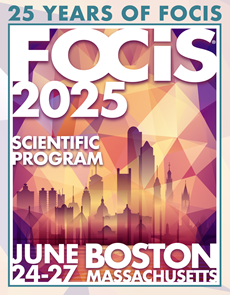Autoimmune Diseases
Session: Immunoengineering and Therapeutics
SBT115301, a Second Generation CD2-targeting LFA3 Fusion Protein to Restore Immune Homeostasis in Autoimmune Disease
Thursday, June 26, 2025
5:40pm - 5:55pm East Coast USA Time
Location: Salons F-G
Jeff Bluestone – Sonoma Biotherapeutics; John Bui – Sonoma Biotherapeutics; Jonathan Clingan – Sonoma Biotherapeutics; Jason Do – Sonoma Biotherapeutics; Leonard Dragone – Sonoma Biotherapeutics; Jason Dubovsky – jdubovsky@sonomabio.com; Ekaterina Gibiansky – QuantPharm; Katherine Matsuda – Sonoma Biotherapeutics; Lauren Mihalcik – Aclairo Pharmaceuticals Development Group; Frederick Ramsdell – Sonoma Biotherapeutics; Anne -Renee van der Vuurst de Vries – Sonoma Biotherapeutics; Yuanyuan Xiao – Sonoma Biotherapeutics; Wing Yu Lam – Sonoma Biotherapeutics
- HL
Hervé Lebrec, PharmD, PhD, DABT
VP Development Sciences
Sonoma Biotherapeutics
Alameda, California, United States
Presenting Author(s)
Abstract Text: In autoimmune diseases, an imbalance of effector T cells (Teff) and regulatory T cells (Treg) contributes to inflammation and tissue destruction. CD2, an adhesion and co-stimulatory molecule, is highly expressed on Teff and at lower levels on Treg and naïve T cells (Tn) and is an attractive target for depleting Teff at sites of inflammation. SBT115301 is a CD2-targeting drug consisting of the cognate receptor of CD2, Lymphocyte Function Associated Antigen-3 (LFA-3; CD58), fused with human immunoglobulin (Ig) G1-crystallizable fraction (Fc). SBT115301 induced antibody-dependent cellular cytotoxicity (ADCC) of CD2hi T cells and decreased the number of proliferating Teff responding to different stimuli in vitro. Nonclinical studies in non-human primates (NHP) demonstrated that SBT115301 decreased CD2hi-expressing effector memory (Tem) and central memory (Tcm) cells, while Treg and Tn were less affected and there were no adverse events (AEs). In a first-in-human, randomized, single-dose escalation Phase 1 clinical trial studying both intramuscular (IM) and intravenous (IV) administration, the pharmacokinetics (PK) of SBT115301 was similar to other fusion proteins, and CD4+ Tem and Tcm were preferentially depleted in participants who received the drug. Adverse events were minimal, aside from decreases of CD4+ T cells in some participants in the highest dose IM and IV cohorts. In some individuals, immunogenicity, characterized by the formation of anti-drug antibodies (ADA), decreased exposure of SBT115301 without affecting its pharmacodynamics (PD). These data support further study of SBT115301 in autoimmune indications as a monotherapy or in combination with other drugs to restore balance to the immune system.

